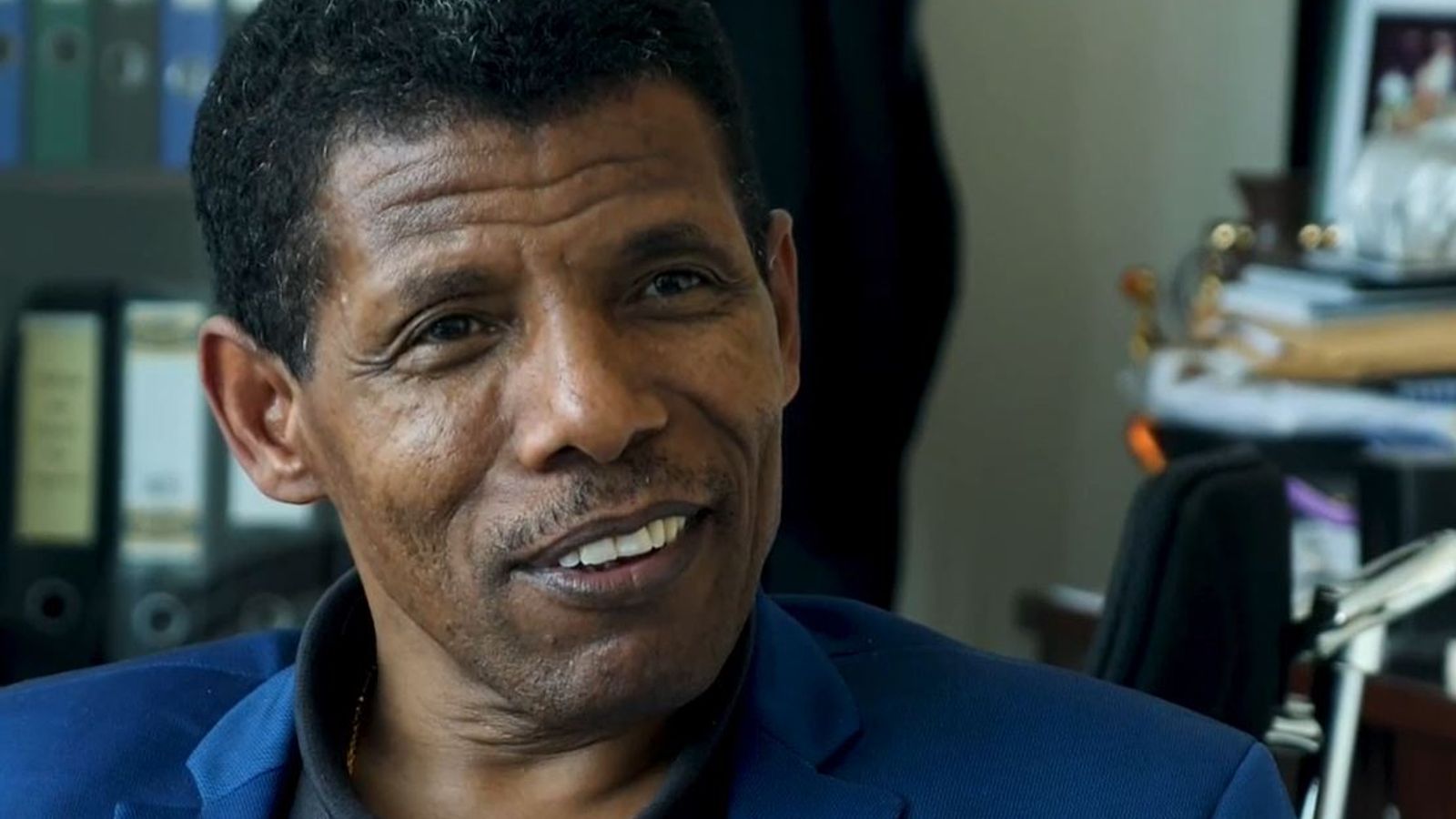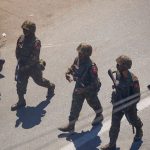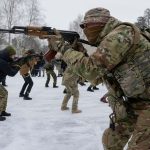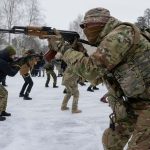The two-time Olympic gold medal winner Haile Gebrselassie is one of the world’s best-known athletes, a national hero in Ethiopia who also happens to be an accessible man and after a couple of phone calls we found ourselves sitting in his modest-looking office in the centre of Addis Ababa.
We had come to talk about the war, knowing that the 48-year-old has spent a considerable amount of time trying to prevent the raging conflict between the government of Prime Minister Abiy Ahmed and the leaders of the rebellious region of Tigray.
Gebrselaisse’s efforts as a member of a group called “the elders” would come to nothing and it was clear that the champion runner’s views have hardened of late.
Please use Chrome browser for a more accessible video player
“We are brothers, we are sisters, I don’t have any problem with anybody,” he said. “But I have a problem with someone who wants to put down my Ethiopia, my country.
“If he or she wants to put down my Ethiopia, I am against them, sorry.”
“You are saying the TPLF [Tigray People’s Liberation Front] are doing that,” I replied.
“If they want to put Ethiopia down, no question,” he confirmed.
Tigray conflict: Ethiopia PM pictured in fatigues as he joins army on frontline of battle against rebel fighters
Ethiopians prepare for battle to ‘save the nation’, as men and women head to the front
Ethiopia: Volunteers join police patrols as thousands sign up to defend Addis Ababa from advancing Tigrayans
A battle for political power, waged between Mr Ahmed’s government and the Tigray People’s Liberation Front (TPLF), has turned into a bloody contest, a war which is now spreading through large parts of the country.
TPLF fighters have pushed south into the neighbouring region of Amhara, seizing territory just 220km from the capital Addis Ababa. Foreign embassies, including the UK, have told their citizens to get out of Ethiopia.
For Gebrselaisse however, that feels like betrayal: “I feel really very sad. We Ethiopians have a relationship with the whole world, with Americans for over 100 years, Germany for over 100 years, France for over 100 years – many countries over 100 years.
Please use Chrome browser for a more accessible video player
“Okay, now Ethiopia has a problem, how can you just say, ‘oh leave the country as soon as possible, leave them’. I feel so sad.”
Earlier this week, the prime minister announced that he would go to the battlefield and lead from the front, leaving the business of government to others.
It is a move that Gebrselaisse supports, although he thinks Mr Ahmed should have done It earlier.
“It is too late, I am sorry. He should (have gone) before as the leader of this country.”
Please use Chrome browser for a more accessible video player
“Do you see this as an act of desperation – or inspiration?” I asked.
“People can say what they like, that’s up to them. For me we will see the result.”
“What do you think will happen?”
“Ethiopia will win, no matter what, if somebody (fights) Ethiopia, it never loses a battle, never.”
Please use Chrome browser for a more accessible video player
The prime minister has asked ordinary Ethiopians to join him on the battlefield and tens of thousands have responded in the past few weeks.
New recruits, attending public rallies in Addis Ababa, told us they expect to receive military training at the front.
I asked Gebrselaisse what he made of it.
“I have a message for international (people). The rising of the people here in Ethiopia, it is really amazing.”
Please use Chrome browser for a more accessible video player
“But isn’t there a danger that a lot of the people who are now preparing for the front end up getting killed, that a huge number of people lose their lives?” I suggested.
“Do they have any other choice? If there is no Ethiopia, what is the next step? People are already dying by crossing the Mediterranean Sea, crossing the desert, going to South Africa.”
“Are you saying that there are risks now but those risks are greater if Ethiopia tears itself apart?” I asked.
“Exactly, that’s what I am saying.”
Please use Chrome browser for a more accessible video player
People from all walks of life – including businessmen, builders and homemakers – have joined Ethiopia’s new “citizen army” and we asked the 48-year old former athlete whether he was personally prepared to fight at the front.
“Well, I told you, I told you, do I have any other choice, tell me if there is a choice?”
“But if that meant picking up a weapon, a gun?”
“Well, I am a major by the way. I am a major in (the) police, that’s why don’t be surprised if I hold a weapon because I already have a weapon.”
The TPLF, which lead a governing coalition in Ethiopia between 1991 to 2017, implemented a federal governing structure which redefined politics and identity on ethnic grounds.
Gerbrselaisse views their possible return to power as a fundamental threat to the nation.
“Is the future of the country in danger?” I asked.
“I don’t feel like that honestly speaking because Ethiopia is protected by God. That is what I believe.”






















